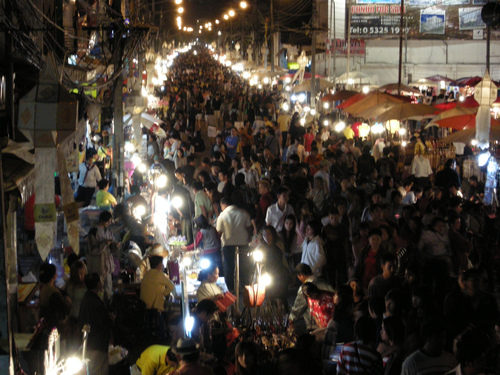According to the UN the world’s population is just now hitting the 7 billion mark. We are already bulging at the seams and it won’t stop there. The estimates are that we will hit 10 billion by 2085. The implications will alter the very building blocks of our global culture. Is this a planetary threat or a call for innovation and renewal? How we react will define the outcome.
For a historical look at population growth take a look at this graphical representation of how we got to 7 billion from NPR. It came to me from Flowing Data.
Panoramix View
Society
– Already half of us live in cities and a new breed of city has blossomed.
– Living together successfully will require tolerance for diversity and change
Technology
– Smart cities is an exploding field with tech giants like IBM, Cisco, Siemens, Oracle, SAP, and Microsoft leading the way.
– The goal of smart cities is to transform and improve communities through technology that connects all the elements of a city “system” allowing for more efficient design, development, and operation linking government, hospitals, schools, transportation, and monitoring utilities like water use, energy use, and traffic
Environment
– Feeding, housing and transporting 7 billion and more will put enormous stress on the environment
– The World Bank’s New Urban and Local Government Strategy is a proactive and positive approach to planning, supporting sustainable vital cities.
– Vertical farming is one interesting strategy for a crowded plant—farming where the people are
Economy
– Managed properly cities and a growing population are an opportunity for economic growth
– Education and employment strategies will be critical
Politics
– For global leaders, CEOs, and city planners, a strong vision for the future is of vital importance
– All areas of the public and private sector must recognize and understand the coming wave and plan for crowded future
– Stable governance and innovative partnerships will be the key to successful, thriving sustainable planet

